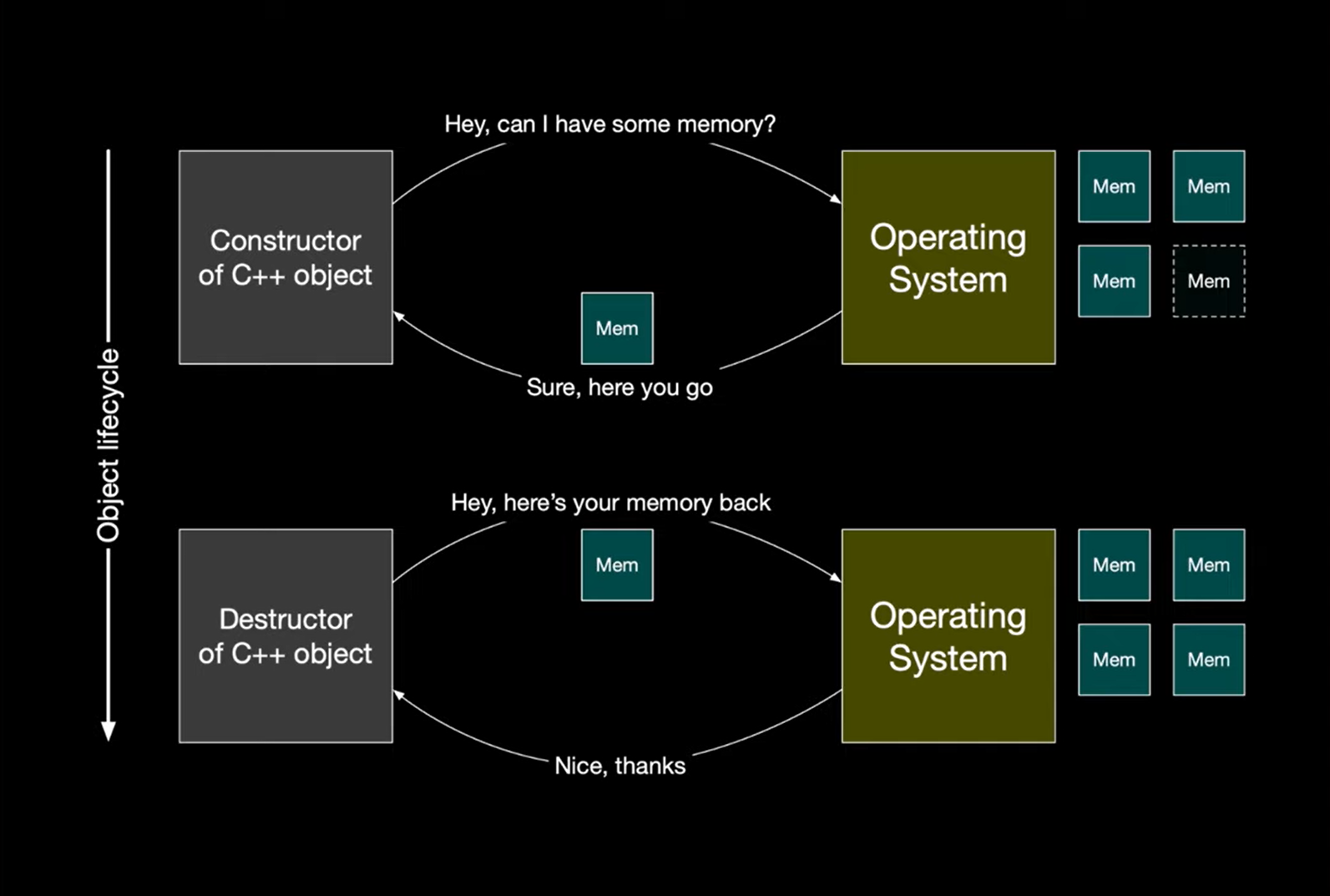RAII - Resource Acquisition is Initialization
Funny acronym for a small job.
It is a C++ programming technique which binds the life cycle of a resource that must be acquired before use, to the lifetime of an object. Resource could be heap memory, thread of execution, open file, lock mutex - anything that exists in limited supply.

RAII can be summarized as follows:
- encapsulate each resource into a class, where
- the constructor acquires the resource and establishes all class invariants or throws an exception if that cannot be done
- the destructor releases the resource and never throws exceptions;
- always use the resource via an instance of a RAII-class that either
- has automatic storage duration or temporary lifetime itself, or
- has lifetime that is bounded by the lifetime of an automatic or temporary object
Some STL RAII classes are :
std::stringstd::vectorstd::jthreadstd::lock_guard
Code Example
Dynamic Array
#include<iostream>
using namespace std;
class CustomArray {
public:
CustomArray(int size) {
arr = new int(size); // allocating memory
}
~CustomArray() {
delete arr; // deallocating memory
}
bool set(int index, int val) {
if(index >= size or index < 0) return false; // failed to set value
arr[index] = val;
return true;
}
int get(int index) {
if(index >= size or index < 0) return -1; // failed to get value
return arr[index];
}
int getSize() {
return this->size;
}
int front() {
if(size > 0) return arr[0];
}
int back() {
if(size > 0) return arr[size-1];
}
private:
int *arr;
int size;
};
void arrayDemoGood() {
CustomArray myArr(10);
for(int i = 0; i < 10; i++) {
cout << myArr.set(i, i*i) << endl;
}
for(int i = 0; i < 10; i++) {
cout << myArr.get(i) << endl;
}
// when arr goes out of scope, the memory is freed by the destructor
}
void arrayDemoBad() {
int* arr = new int(10);
for(int i = 0; i < 10; i++) arr[i] = i;
for(int i = 0; i < 10; i++) cout << arr[i] << endl;
// memory leak - not deallocating memory used by arr
}
int main() {
arrayDemoBad();
cout << "----------------------------------------\n";
arrayDemoGood();
return 0;
}
Mutex lock
#include<iostream>
#include<mutex>
using namespace std;
std::mutex globalMutex;
void criticalSection(int n) {
cout << "CRITICAL CODE" << endl;
if(n%69 == 0) throw "Not allowed";
}
void mutexDemoGood() {
lock_guard<mutex> lk(globalMutex);
criticalSection(69*4 + 1);
}
void mutexDemoBad() {
globalMutex.lock();
criticalSection(69*3 + 1); // if this function throws an exception, then mutex lock is never released - bad situation
globalMutex.unlock();
}
int main() {
mutexDemoBad();
mutexDemoGood();
return 0;
}